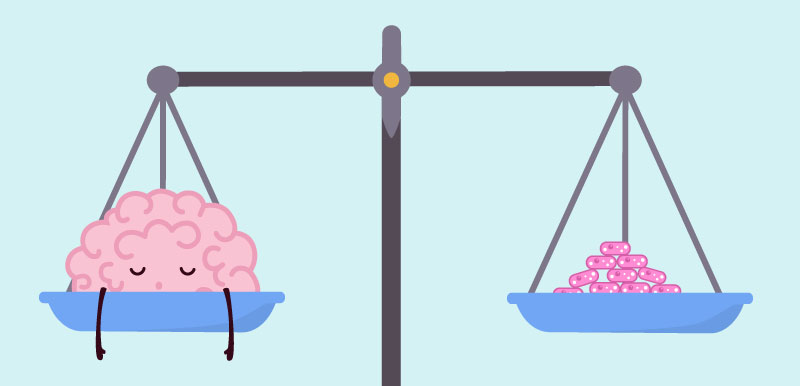What is the Microbiome?
The Microbiome is considered one of the most important organs, but it is not actually an organ. Instead, it is a collection of diverse organisms, called microbes, that live inside of your intestines (aka the gut). That is why it is sometimes called the gut microbiome.
There are trillions of microbes in the microbiome. These microbes are bacteria and fungi that play an important role in many of our body’s functions from digestion and obesity, to mental issues such as anxiety and depression.

The bacteria in the microbiome are incredibly diverse, there can be 1,000 different species, each playing a different role in your health. Combined, the microbiome could weigh as much as 5 pounds, that’s a lot of microscopic cells that weigh almost as much as a human brain.
What does the Microbiome do?
In recent years a significant amount of research has been conducted to understand the role of the microbiome. This research has helped us to identify the role of the microbiome in digestion and metabolism, which is incredibly important. Everything that we eat or drink has to be processed by our body, and when we don’t process food properly it can have a serious impact on our health.
This process is so important that it has been linked to:
- Anxiety
- Depression
- Body Weight
- Alzheimer’s
- Disease Prevention
- Athletic Performance
- Energy
- Parkinson's
When we think of digestion, we think of the stomach, but the stomach only does part of the work. The microbiome steps in to do the work that the stomach can’t do.
However, digestion and metabolism are only part of the story. The bacteria of the microbiome act as part of the immune system by fighting off unhealthy microorganisms. It even helps by manufacturing some of the body’s most important vitamins, including those that are responsible for blood coagulation and cellular energy.
Each Microbiome is different
No two microbiomes are the same, and the differences are important. Recent research has linked obesity and athletic performance to the differences in the types of bacteria living in our gut.
Each microbiome is different because babies aren’t born with their microbiome. Instead, doctors refer to the microbiome as an acquired organ because the microbes in the intestine start to grow after we are born and evolve as we grow.